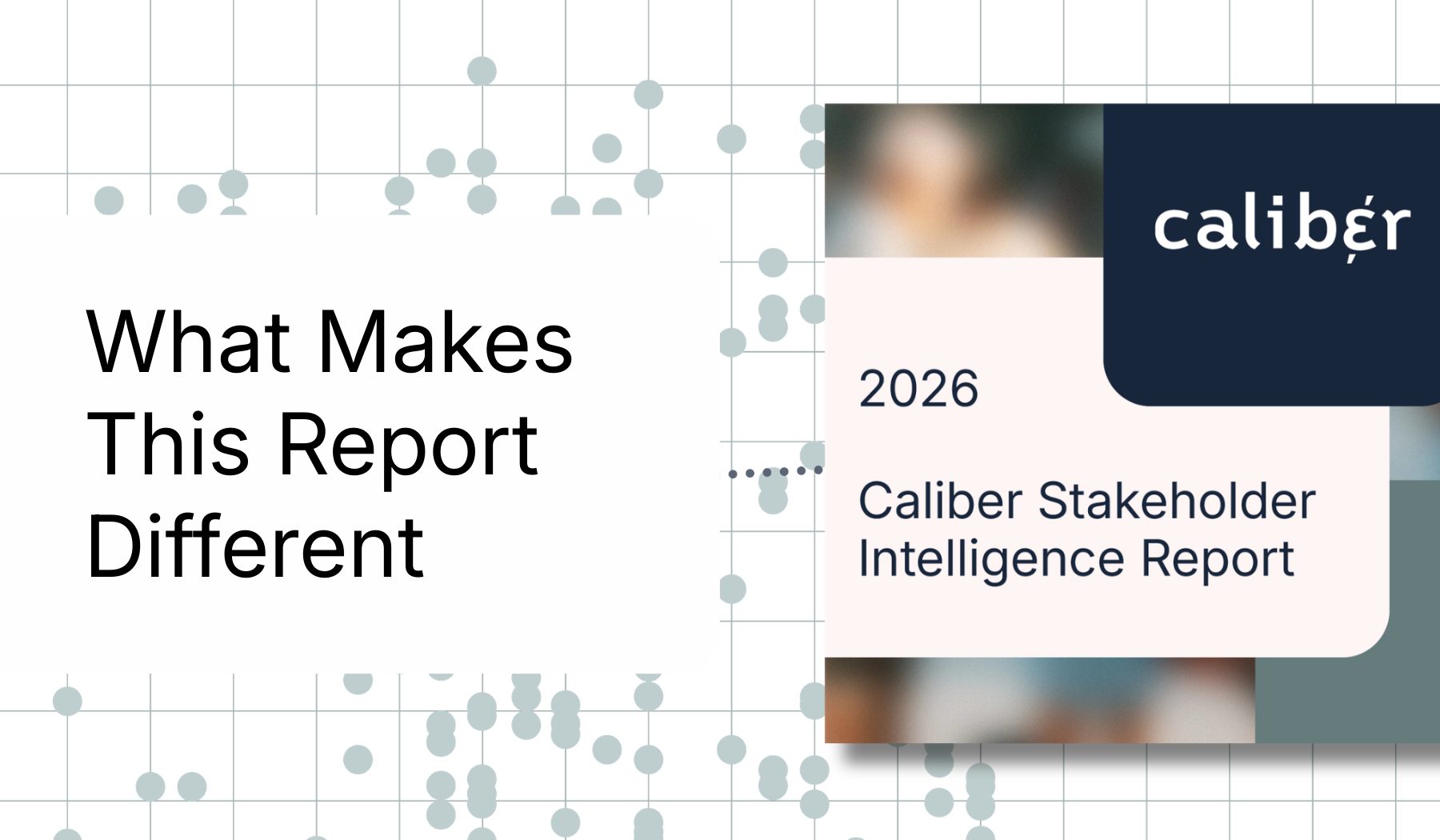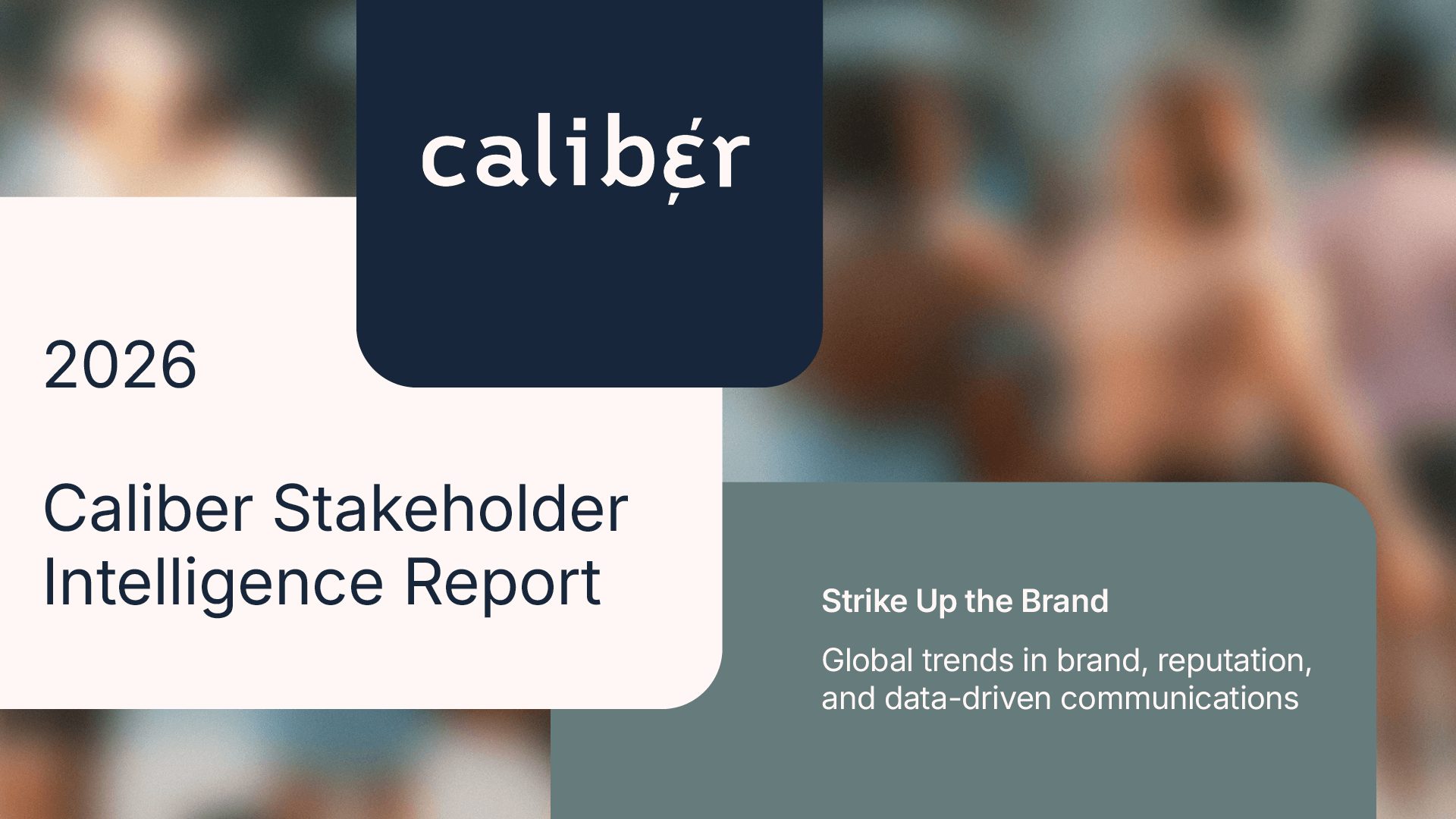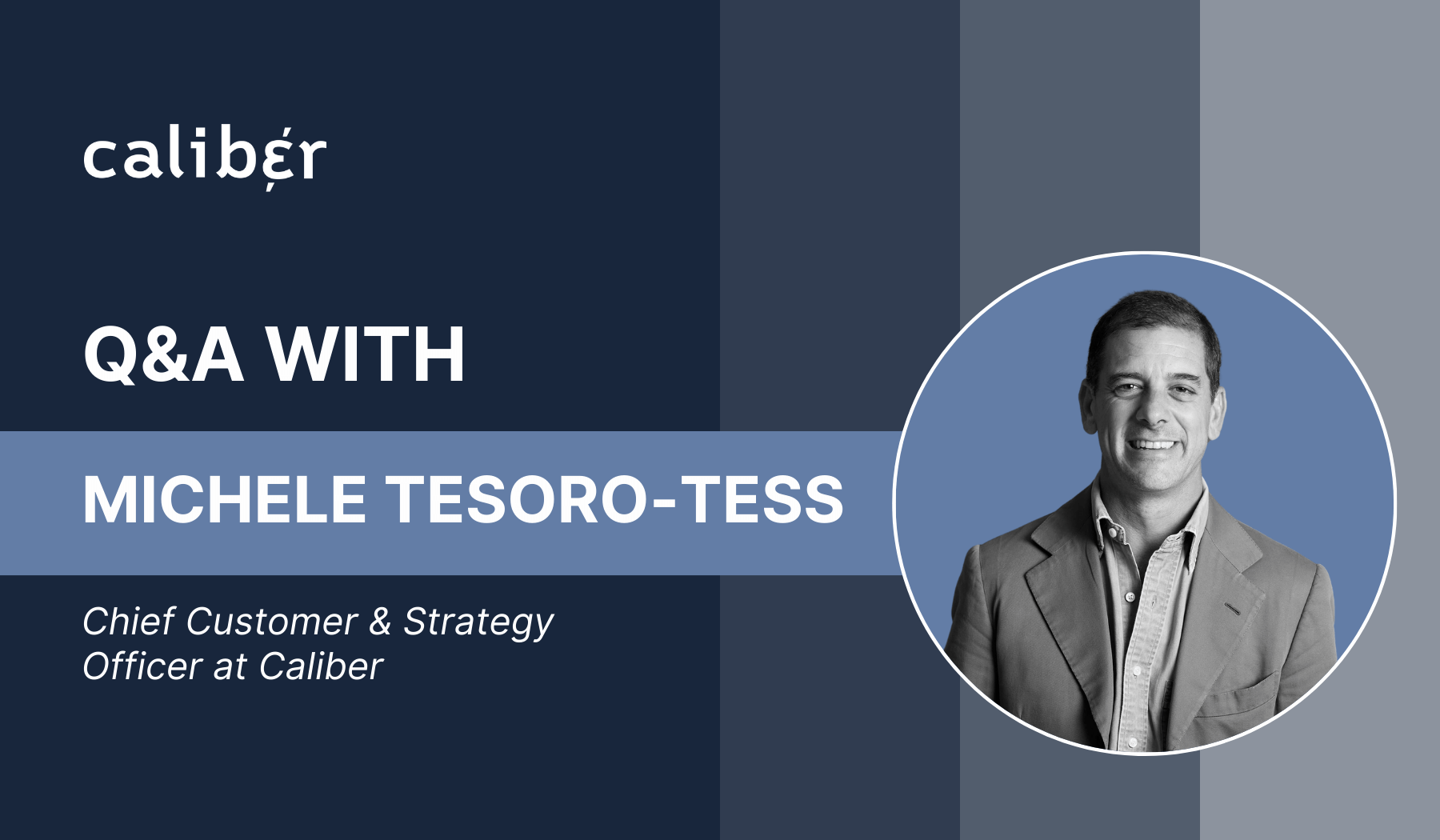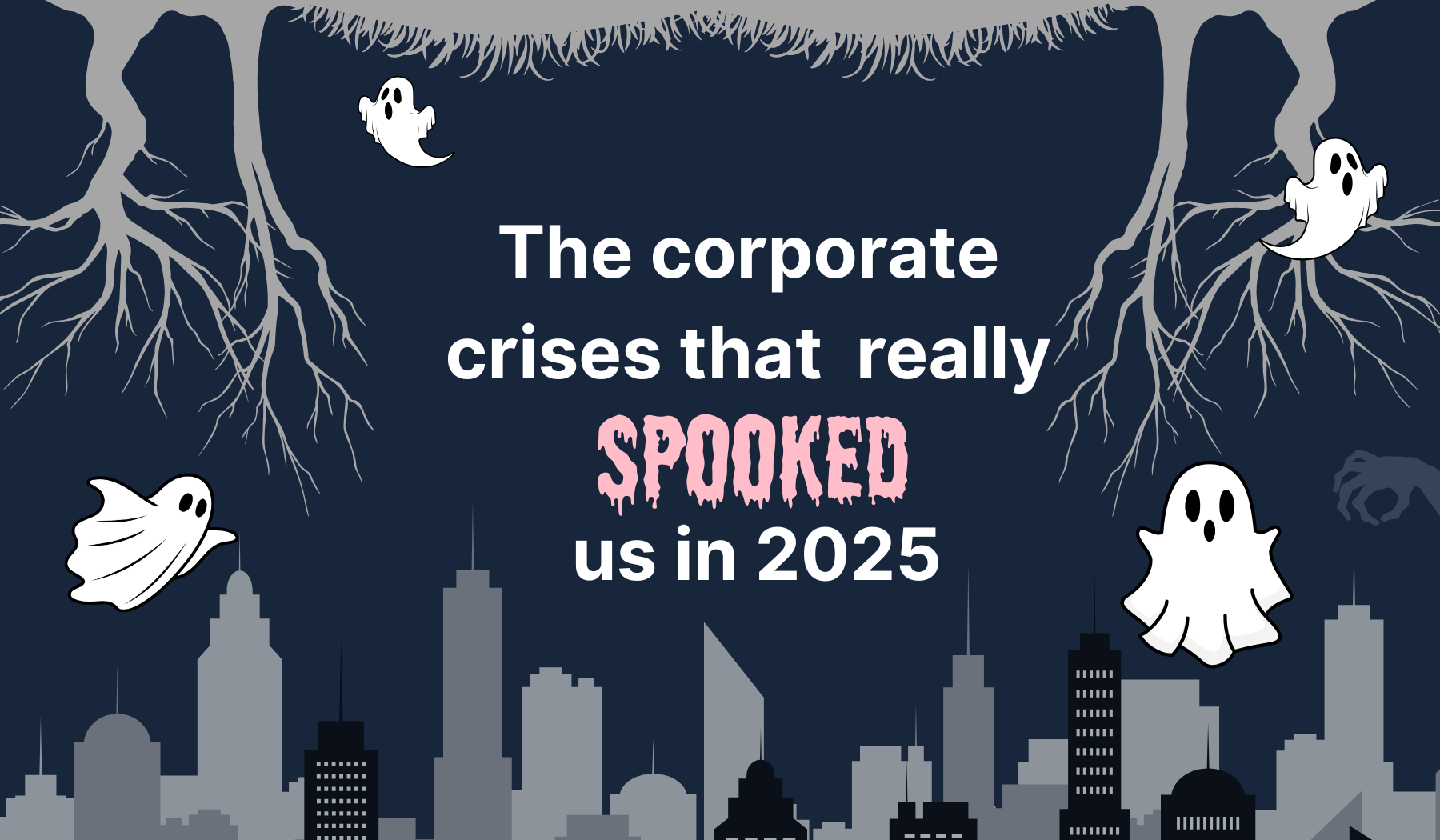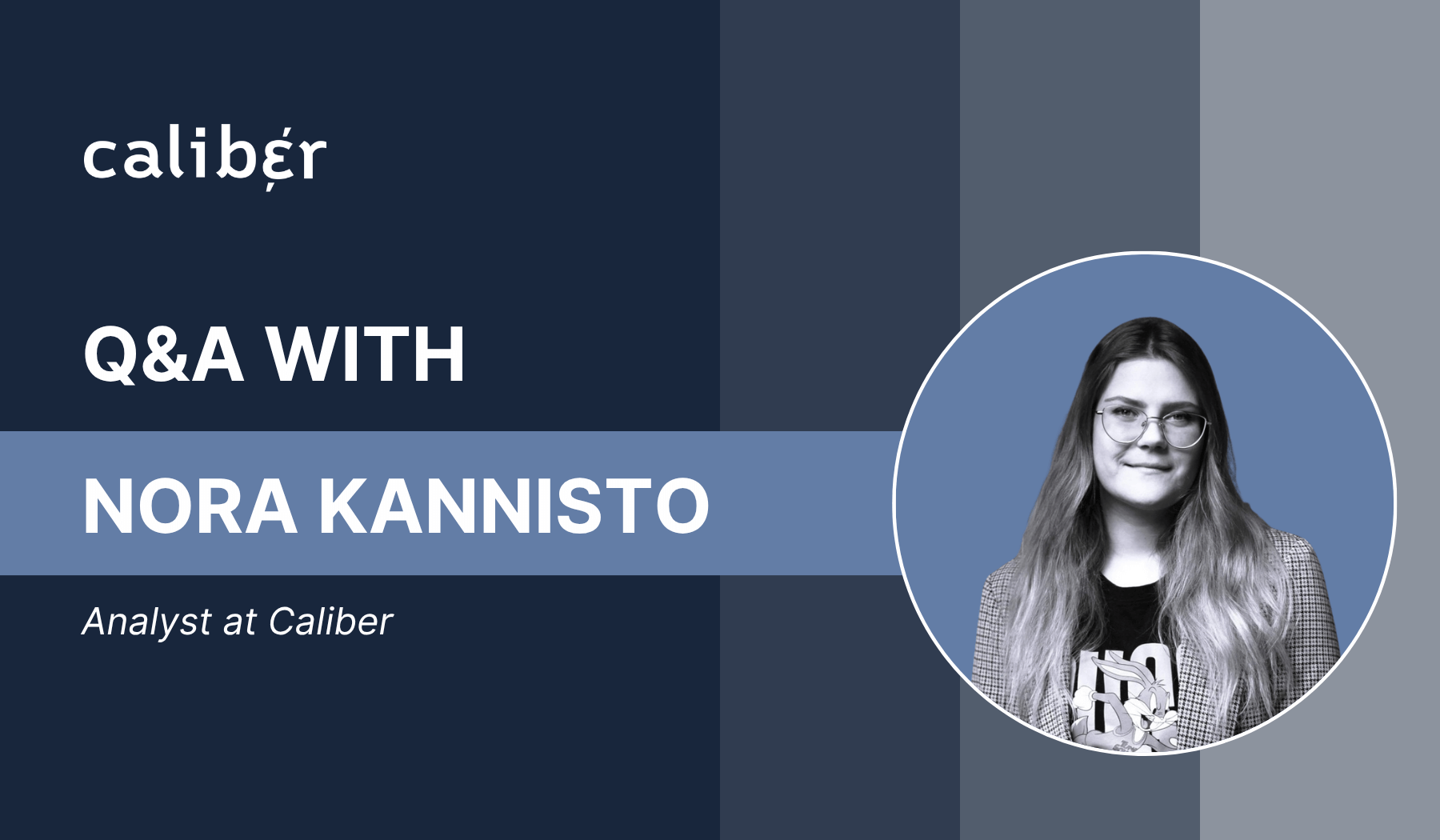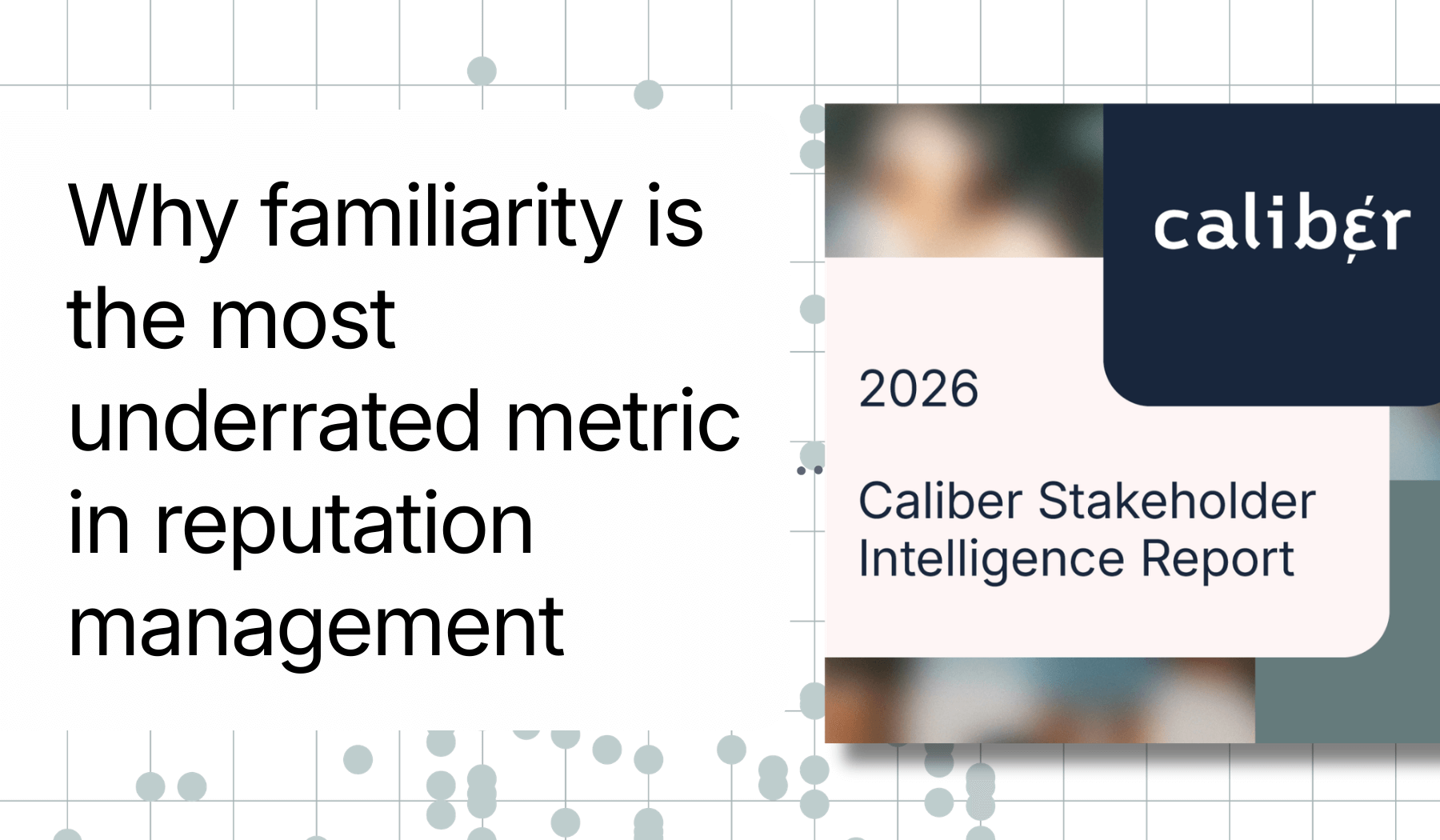
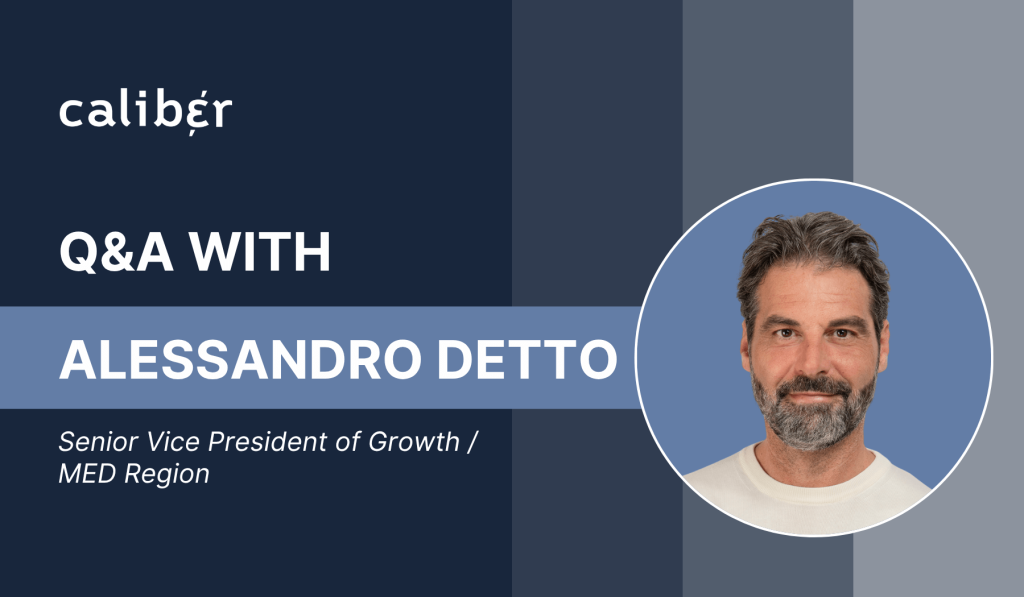
Alessandro Detto joined Caliber in October 2024 as Senior Vice President for Growth, based in Milan. We caught up with Ale to get his take on the current state of corporate reputation management and the growing power of real-time data.
I’m a proud father of two and passionate about building relationships that last, whether professional or personal. In my work, I focus on helping organizations improve how they can make a positive impact, particularly through the lens of reputation.
In the world of reputation, this is straightforward: if you improve your brand and reputation, you can have a more positive impact on people, the planet, and society. It might sound romantic, but it’s true, and that belief guides both my work and life.
Not at all. I came into this world by chance, over a decade ago. I was at Xerox, working in business transformation, helping companies outsource non-core services like customer service, payroll, and HR. It was very operational, very B2B.
Then I got a call from someone looking for someone to develop a reputation practice. I said, “You might have the wrong person!” But they wanted someone with a consulting mindset, someone who understood transformation. Reputation was still a new concept in many markets, especially in Italy.
When I joined Reputation Institute, it was like discovering a whole new world. They were educating the market, showing that reputation wasn’t just important, it could be measured and managed. That concept fascinated me. I saw a room full of people, on a rainy Wednesday morning in Milan, listening intently to a presentation on reputation. That told me: this is powerful.
Caliber is the future of the industry for three reasons.
First, it simplifies a very complex topic. Even when you explain reputation in simple terms, people still struggle to grasp it. Reputation is everything and nothing at once. Caliber merges brand and reputation, two historically separate disciplines, into a unified model. That’s a quiet revolution.
Second, Caliber eliminates the outdated notion of “frequency” in perception measurement. For years, companies would measure reputation once every year or two. But in today’s world, that’s useless. It’s like taking a photo once a year and expecting to understand what’s changed. Caliber lets you track perceptions continuously, daily, so you can respond to what’s happening in real time.
Third, Caliber shifts the focus from stakeholder categories to stakeholder ecosystems. We can’t segment people purely by profession; journalists are also consumers, parents, and friends. People contain multitudes. Effective reputation measurement must acknowledge that and capture people as whole beings.
Bias. Cultural, organizational, and conceptual. In the UK, reputation is often equated with media monitoring. In Germany, brand is considered more important than reputation. In Italy, many still think one annual survey is enough. These are biases we need to gently challenge to help organizations leverage their whole intangible asset.
Another bias is how companies silo information: brand tracking, customer satisfaction, and employee engagement — all measured separately. But your employees may also be your customers. Or your customers may work for your competitors. Caliber helps integrate these views into one coherent understanding of perception.
I make them care about the risk, show them what they’re missing, and then reassure them that they can handle it. The key is not lecturing, but showing practical value.
CCOs often struggle to justify their seat at the leadership table. They’re under pressure to demonstrate value, and traditionally, they’ve done that by putting a mic in front of the CEO and counting press clippings. But that doesn’t reflect real stakeholder perception.
Caliber provides evidence they can use to validate their impact and secure their strategic relevance.
A big Italian telco operator for example. They understood immediately that Caliber enables them to manage an intangible, strategic asset, reputation, on a daily basis.
Before, reputation was only reviewed once a year. Now, they can act in real time, make data-driven decisions, and show the impact of those actions over time. That’s an example of transformation: turning a strategic concept into operational reality.
It’s not about industry or size. It’s about mindset. I’ve worked with €50 million revenues companies who cared deeply about reputation, and I’ve seen massive global brands just starting to pay attention.
One of the world’s most iconic brands only seriously began managing reputation seven years ago. They had long mastered brand management, which is inside-out. Reputation is outside-in. Understanding that distinction is crucial.
The luxury industry. Fashion and luxury brands are focused almost entirely on brand image. They care about the surface — products, aesthetics — not what lies beneath. Many still ignore sustainability, supply chain ethics, or stakeholder perceptions.
If I could work with someone like Kering’s new CEO, Luca de Meo, I’d love to help shift that mindset. I think he has the vision to change the game. We need to make the intangible—like trust and perception—tangible for industries that have so much influence but haven’t fully embraced their responsibility.
Reputation is evolving from an abstract concept to a manageable, measurable asset. The companies that succeed will be those that understand that managing reputation daily, like any other KPI, is the only way to stay relevant, resilient, and trusted in a fast-changing world. This shift requires moving from strategic thinking to operational execution.
You may also be interested in:

